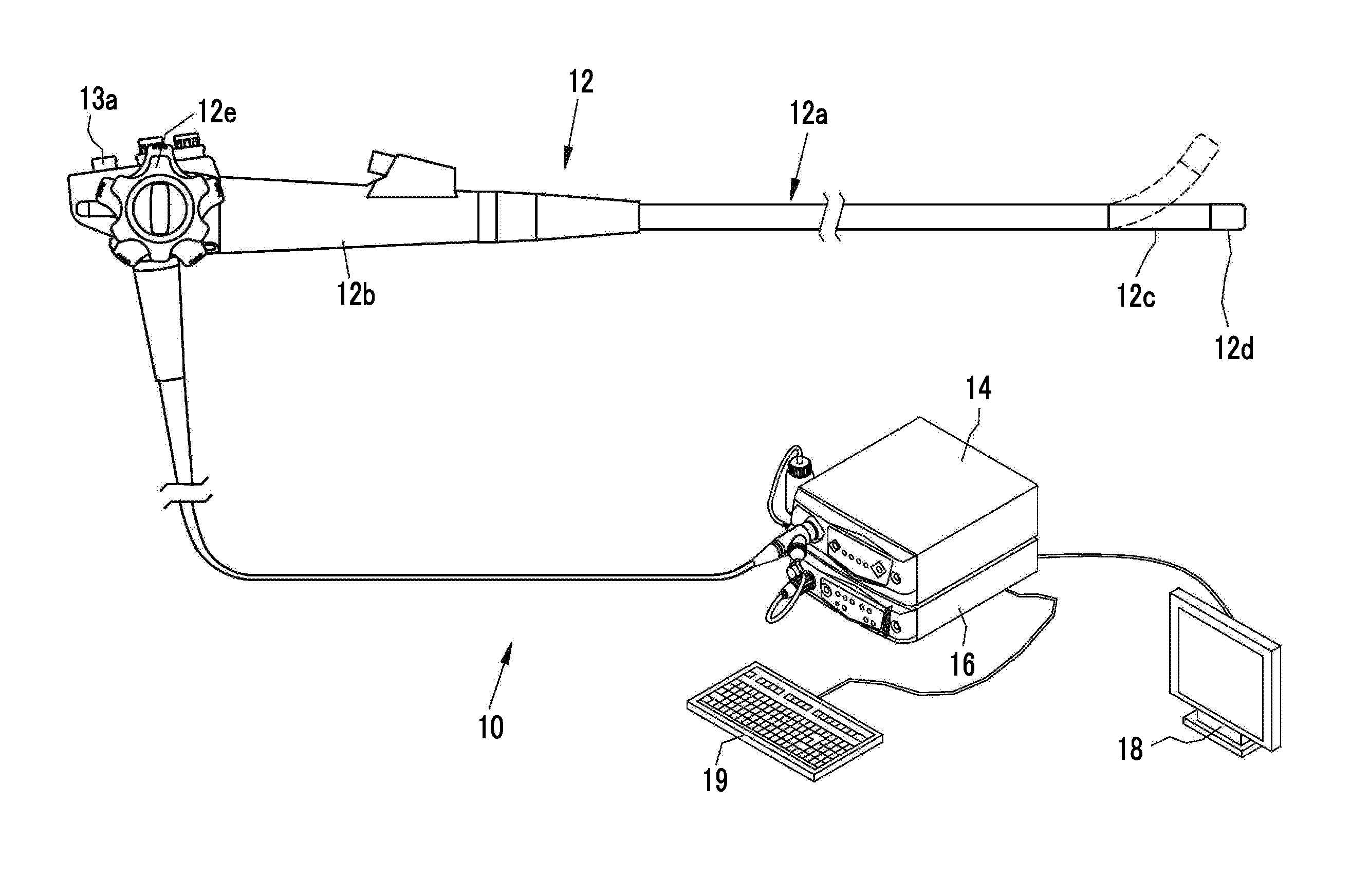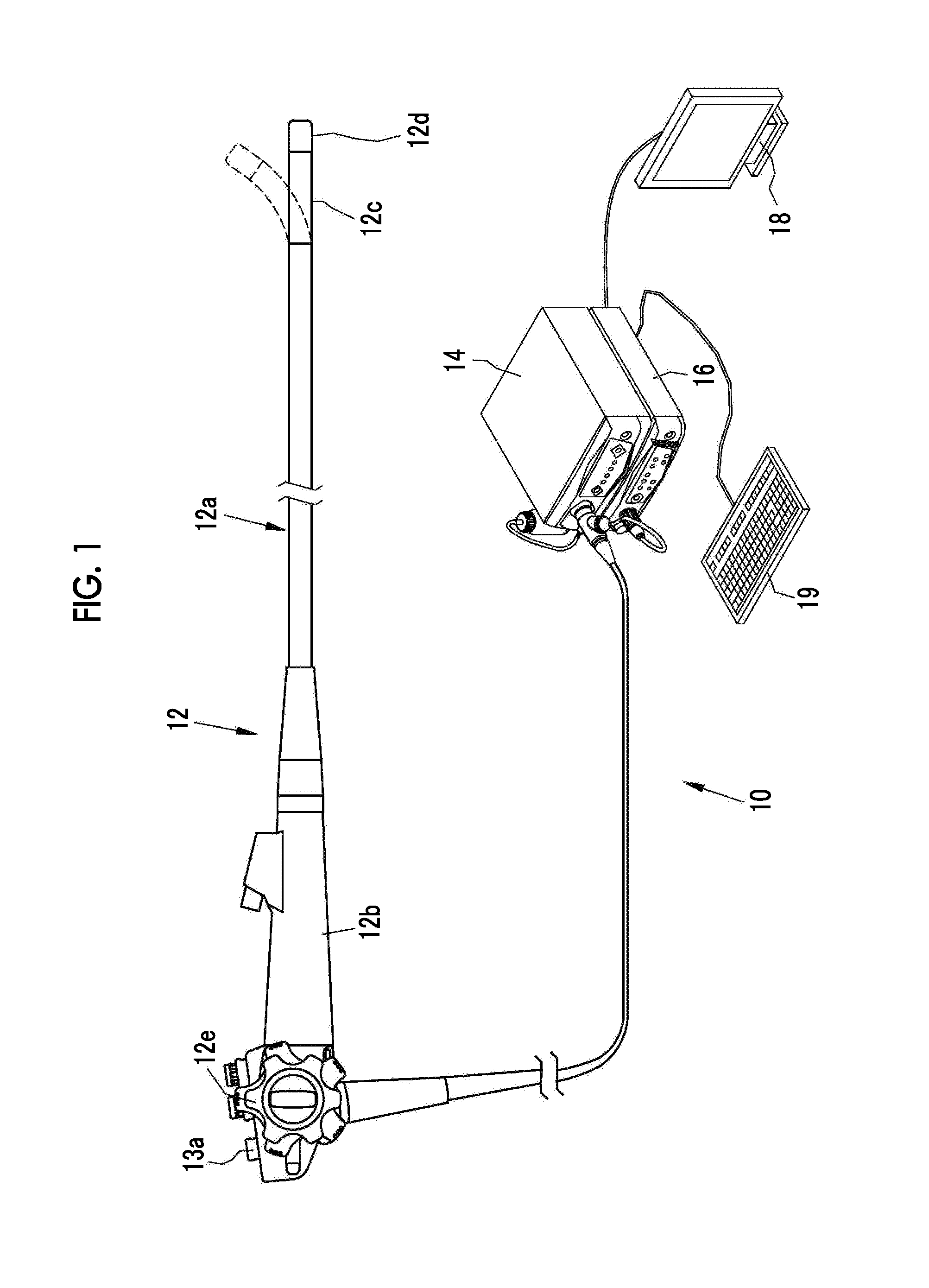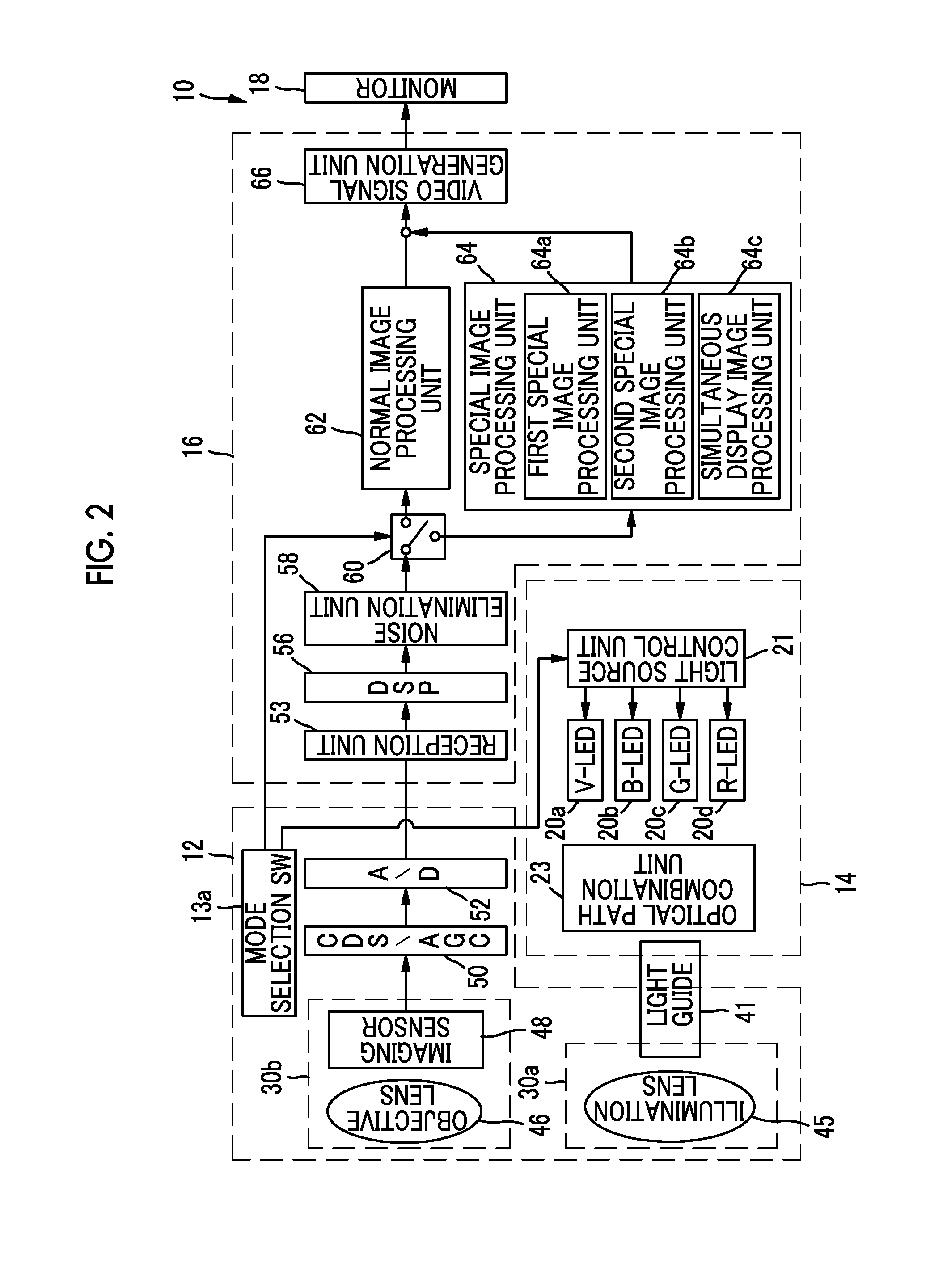Medical image processing device, operation method therefor, and endoscope system
- Summary
- Abstract
- Description
- Claims
- Application Information
AI Technical Summary
Benefits of technology
Problems solved by technology
Method used
Image
Examples
first embodiment
[0047]As shown in FIG. 1, an endoscope system 10 of a first embodiment has an endoscope 12, a light source device 14, a processor device 16, a monitor 18 (display unit), and a console 19. The endoscope 12 is optically connected to the light source device 14 and electrically connected to the processor device 16. The endoscope 12 has an insertion portion 12a which is inserted into a subject, an operation portion 12b which is provided in a base portion of the insertion portion 12a, and a bending portion 12c and a tip portion 12d which are provided on the tip side of the insertion portion 12a. The bending portion 12c is bent by operating an angle knob 12e of the operation portion 12b. The tip portion 12d is directed in a desired direction with this bending operation.
[0048]The operation portion 12b is provided with a mode selection SW 13a, in addition to the angle knob 12e. The mode selection SW 13a is used for a switching operation between four modes of a normal observation mode, a firs...
second embodiment
[0098]In a second embodiment, an observation target is illuminated using a laser beam source and a phosphor, instead of the LEDs 20a to 20d of the four colors shown in the first embodiment. Other than that, the components are the same as those in the first embodiment.
[0099]As shown in FIG. 16, in an endoscope system 100 of the second embodiment, a light source device 14 is provided with, instead of the LEDs 20a to 20d of the four colors, a blue laser beam source (in FIG. 16, denoted as “445LD”) 104 which emits a blue laser beam having a center wavelength of 445±10 nm, and a blue-violet laser beam source (in FIG. 16, denoted as “405LD”) 106 which emits a blue-violet laser beam having a center wavelength of 405±10 nm. Light emission from semiconductor light emitting elements of the light sources 104 and 106 is individually controlled by a light source control unit 108, and the light quantity ratio between emitted light from the blue laser beam source 104 and emitted light of the blue-...
third embodiment
[0105]In a third embodiment, an observation target is illuminated using a broadband light source, such as a Xenon lamp, and a rotary filter, instead of the LEDs 20a to 20d of the four colors shown in the first embodiment. The observation target is imaged with a monochrome imaging sensor, instead of the color imaging sensor 48. Other than that, the components are the same as those in the first embodiment.
[0106]As shown in FIG. 19, a light source device 14 of an endoscope system 200 of the third embodiment is provided with a broadband light source 202, a rotary filter 204, and a filter switching unit 205, instead of the LEDs 20a to 20d of the four colors. The imaging optical system 30b is provided with a monochrome imaging sensor 206 with no color filters, instead of the color imaging sensor 48.
[0107]The broadband light source 202 is a Xenon lamp, a white LED, or the like, and emits white light having a wavelength band from blue to red. The rotary filter 204 comprises an internal filt...
PUM
 Login to View More
Login to View More Abstract
Description
Claims
Application Information
 Login to View More
Login to View More - R&D
- Intellectual Property
- Life Sciences
- Materials
- Tech Scout
- Unparalleled Data Quality
- Higher Quality Content
- 60% Fewer Hallucinations
Browse by: Latest US Patents, China's latest patents, Technical Efficacy Thesaurus, Application Domain, Technology Topic, Popular Technical Reports.
© 2025 PatSnap. All rights reserved.Legal|Privacy policy|Modern Slavery Act Transparency Statement|Sitemap|About US| Contact US: help@patsnap.com



